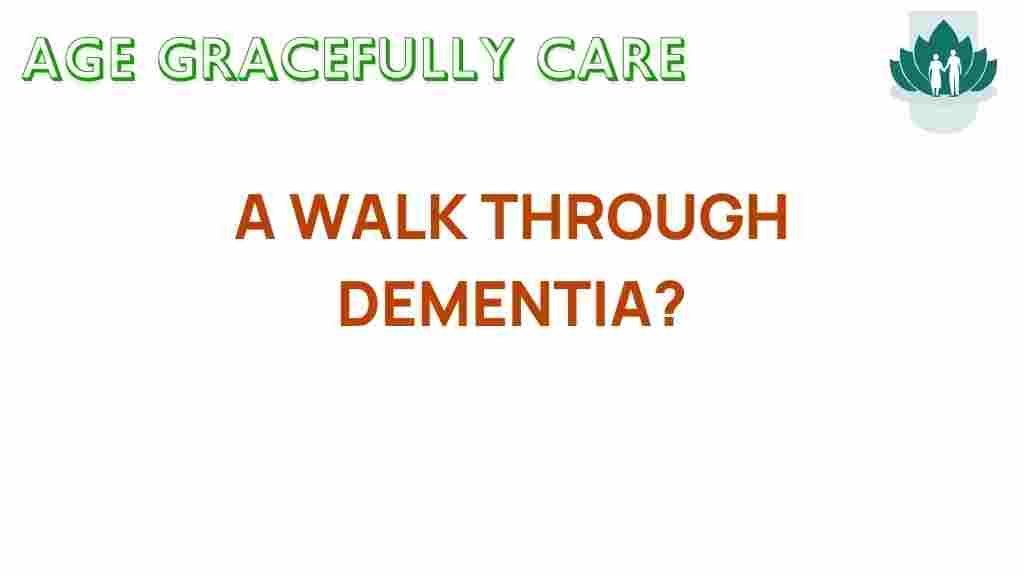Dementia is a term that encompasses a variety of conditions characterized by a decline in cognitive functions, including memory loss, reasoning, and communication abilities. As our population ages, the prevalence of dementia is increasing, making it essential for families and caregivers to understand this complex journey. Caregiver support, brain health, and mental wellness play vital roles in navigating the challenges associated with dementia. This article will guide you through the essential aspects of dementia, providing valuable resources and insights into family dynamics, healthcare, and support resources.
Understanding Dementia
Dementia is not a single disease but a collective term for several symptoms affecting memory, thinking, and social abilities severely enough to interfere with daily life. The most common type of dementia is Alzheimer’s disease, which accounts for 60-80% of cases. Other types include vascular dementia, Lewy body dementia, and frontotemporal dementia.
Recognizing the signs of dementia is crucial for timely intervention. Symptoms may vary but typically include:
- Memory loss that disrupts daily life
- Challenges in planning or solving problems
- Difficulty completing familiar tasks
- Confusion with time or place
- Changes in mood and personality
The Role of Caregiver Support
Caring for someone with dementia is a significant responsibility that can take a toll on caregivers. It is essential to prioritize caregiver support to ensure that they remain healthy and effective in their role. Here are some ways to enhance caregiver support:
- Education: Understanding dementia and its stages can help caregivers manage expectations and improve their caregiving strategies.
- Respite Care: Taking breaks is essential. Respite care options can provide temporary relief for caregivers, allowing them to recharge.
- Support Groups: Connecting with others in similar situations can provide emotional support and practical advice.
Promoting Brain Health
Maintaining brain health is critical for everyone, especially as we age. Here are some strategies to promote brain health and potentially reduce the risk of dementia:
- Healthy Diet: Consuming a diet rich in fruits, vegetables, whole grains, and lean proteins can support cognitive function. The Mediterranean diet has been linked to a reduced risk of dementia.
- Regular Exercise: Physical activity increases blood flow to the brain and promotes the growth of new brain cells.
- Mental Stimulation: Engaging in puzzles, reading, or learning new skills can help keep the mind sharp.
- Social Engagement: Maintaining social connections can reduce feelings of isolation and depression, positively impacting mental wellness.
Memory Loss and Its Impact on Family Dynamics
Memory loss is one of the most challenging aspects of dementia, affecting not only the individual but also their family dynamics. Families may experience:
- Role Reversals: As cognitive abilities decline, caregivers often take on more responsibilities, shifting family roles.
- Emotional Strain: Family members may feel grief and loss as they witness their loved one change.
- Communication Barriers: Difficulty in communication can lead to misunderstandings and frustration.
To navigate these challenges, families should prioritize open communication and seek professional guidance when necessary. Finding a balance between caregiving and personal needs is crucial for maintaining healthy family dynamics.
Healthcare Considerations
Accessing appropriate healthcare is vital for individuals with dementia and their caregivers. Here are essential considerations:
- Regular Check-ups: Routine medical evaluations can help monitor the progression of dementia and manage associated health issues.
- Medication Management: Understanding and managing medications can prevent complications and improve quality of life.
- Advanced Care Planning: Discussing future healthcare preferences and legal arrangements is essential for ensuring that the individual’s wishes are respected.
Support Resources for Caregivers
Numerous resources are available to support caregivers and individuals with dementia. Some valuable support resources include:
- National Institute on Aging: A wealth of information on aging, brain health, and dementia can be found at NIA.
- Alzheimer’s Association: This organization provides resources, support groups, and educational materials for families dealing with dementia. Visit Alzheimer’s Association for more information.
- Local Support Groups: Check for local support groups that can provide community and understanding.
Step-by-Step Process for Managing Dementia
Managing dementia effectively involves a structured approach. Here is a step-by-step process to help guide caregivers:
Step 1: Educate Yourself
Understand the type of dementia your loved one has and the specific challenges associated with it.
Step 2: Create a Care Plan
Develop a comprehensive care plan that includes daily routines, medication schedules, and activities tailored to their abilities.
Step 3: Foster Communication
Use clear, simple language and nonverbal cues to facilitate communication. Be patient and give them time to respond.
Step 4: Encourage Independence
Allow your loved one to maintain as much independence as possible. Encourage activities they enjoy and can manage.
Step 5: Monitor Changes
Regularly assess the individual’s condition and adapt the care plan as necessary. Note any changes in behavior or health.
Step 6: Seek Professional Help
Don’t hesitate to consult healthcare professionals or dementia specialists for guidance and support.
Troubleshooting Common Challenges
Caring for someone with dementia can present various challenges. Here are some common issues and troubleshooting tips:
- Behavioral Changes: If your loved one exhibits aggression or withdrawal, try to identify triggers and address the underlying cause.
- Memory Loss: Use reminders, calendars, and labels to help your loved one navigate daily tasks.
- Wandering: Ensure the environment is safe and consider using tracking devices if wandering becomes a concern.
Conclusion
Navigating the complex journey of dementia requires understanding, support, and proactive management. By focusing on caregiver support, brain health, and mental wellness, families can create a nurturing environment for their loved ones. Emphasizing open communication and accessing support resources can significantly ease the journey for everyone involved. Remember, you are not alone in this journey; there are numerous resources and communities ready to support you. Prioritizing your own health and well-being is equally important, as it enables you to provide the best care possible.
This article is in the category Health and created by AgeGracefullyCare Team
